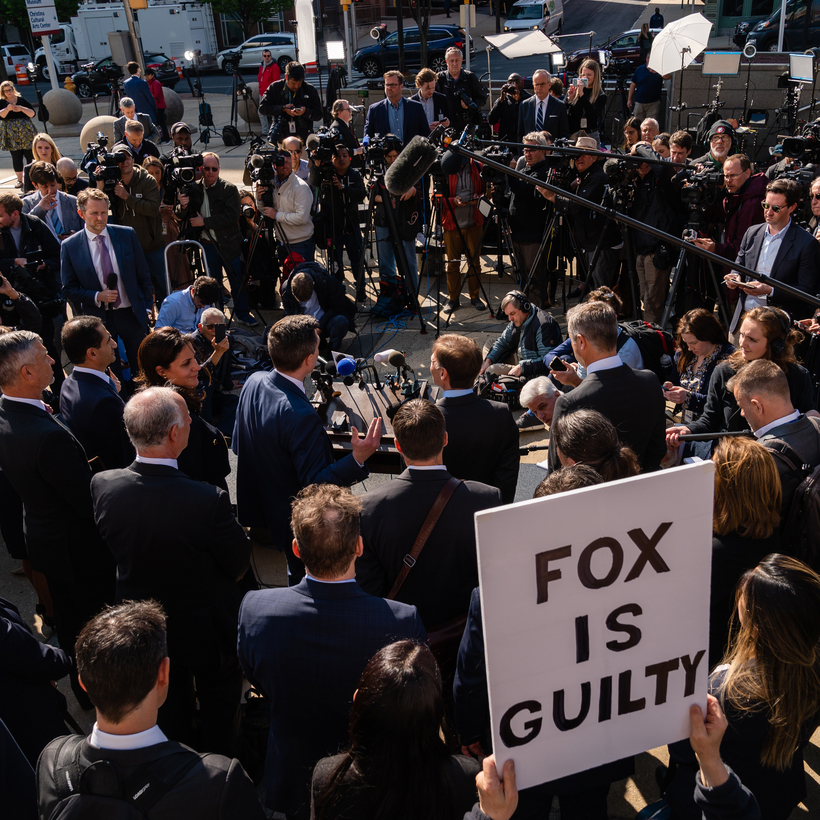An involuntary gasp came from the eager audience when it learned the circus was, after all, not coming to town.
In the crowded Wilmington, Delaware, courtroom Tuesday afternoon, after months of patient preliminaries and a fitful week of efforts to get the Dominion v. Fox News trial underway, capped by a tedious morning of jury selection, the contest was about to ensue.


